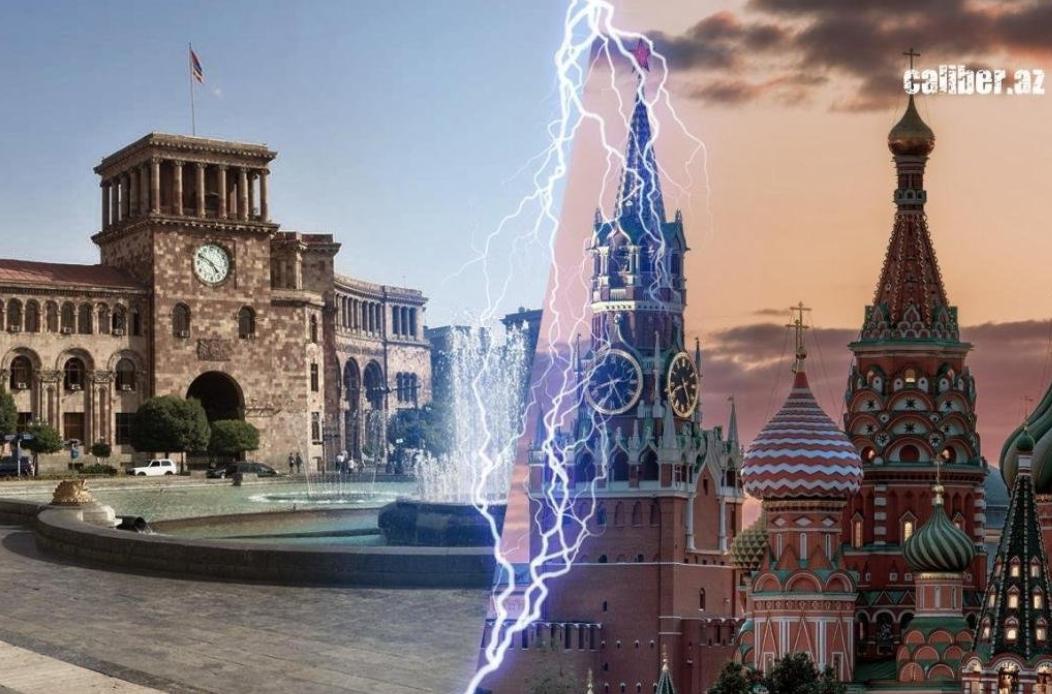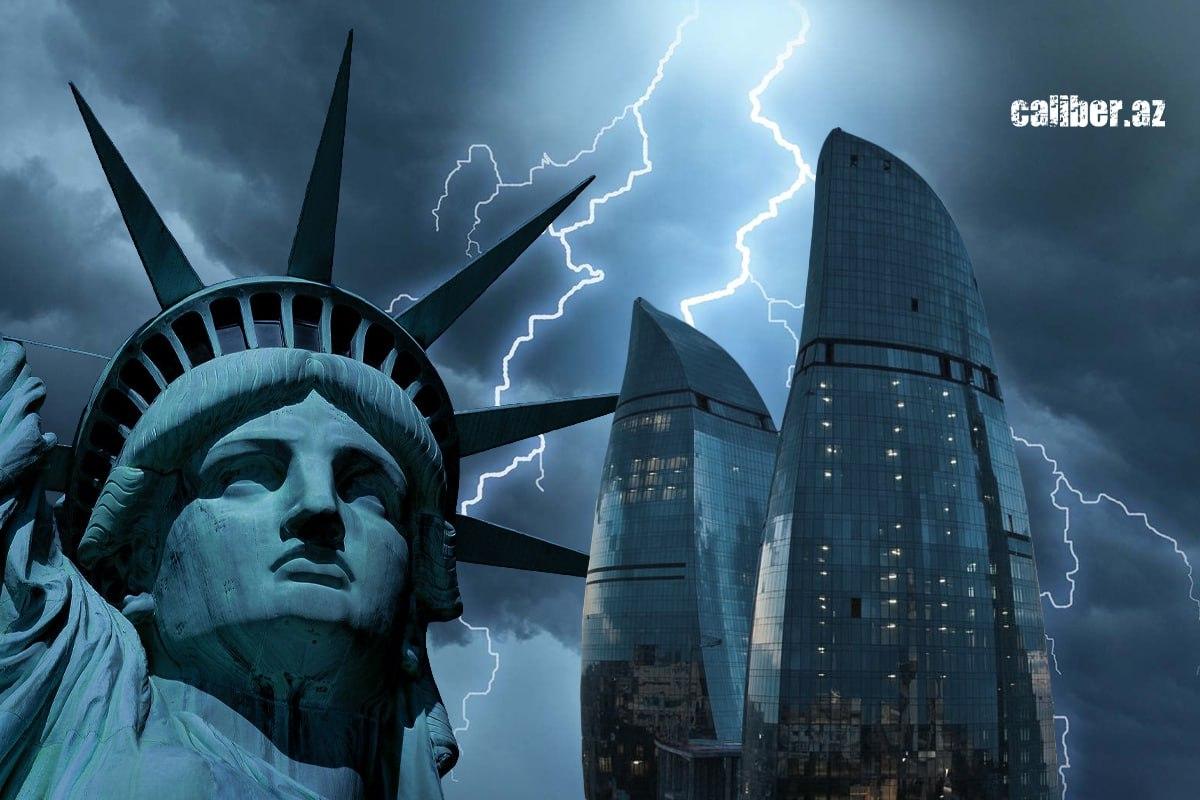"Armenia will end up between the devil and the deep blue sea" Caliber.Az talks to German pundit Alexander Rahr
In an interview with Caliber.Az, Alexander Rahr, German political scientist, and senior researcher at the Institute for World Trends (Potsdam) has shared his thoughts on Armenia's future and Western powers' intentions in the South Caucasus.
- What is your prognosis regarding the Azerbaijani-Armenian peace treaty signing in 2024?
- Of course, the world community hopes that the Azerbaijan-Armenia peace treaty will be signed in 2024. The UN, the EU, the US, Russia, and eventually even China, it seems to me, are going to do everything to help bring about a peace treaty between Armenia and Azerbaijan to stabilise the situation in the South Caucasus. In my opinion, many countries are afraid that all these conflicts will turn into one big war that will completely undermine the world order and destroy trade and economic relations. Nobody wants such a scenario. Even Russia is not interested in a new conflict in the South Caucasus, which might require additional resources from it. The wars in Ukraine and in the Middle East are creating a kind of burning chain of military conflicts, and the South Caucasus is somewhere in the middle of them. So it is better to extinguish this fire as soon as possible if it cannot be done elsewhere.
- What will happen to Armenian-Russian relations in 2024?
- I doubt that Armenia will completely withdraw from the alliance format with Russia. It is still worth considering that geographically, Armenia simply has no choice but to maintain good neighbourly relations with Moscow. For example, Armenia's relations with Turkey are seriously and permanently damaged; Iran, which is located in the south and borders Armenia, is actually under sanctions of the world community and cooperation with it has its own limitations. The situation with Azerbaijan is not clear either, and even if relations begin to improve, it will be a long and difficult process. The European Union may try to pull Armenia out of the Russian orbit, but this will require reconciling Armenia with Turkey, which I believe is beyond Brussels' power. Although the EU will promise a lot to Yerevan, in the end, it seems to me, that Armenia will remain in a situation between two fires, preferring the strategy of flirting with two centres of power, and in this state will continue its foreign policy drift in the coming years.

- How does Berlin view the Russian-Ukrainian war?
- In early 2024, nothing has changed in Germany regarding the Ukrainian war. The German government and elites still believe, although it is unclear where they get such data and such confidence, that Ukraine will eventually, perhaps even this year, win the war against Russia. Germany simply cannot accept Ukraine's defeat for two reasons: first, it will have to admit that German weapons do not correspond to the modern realities of warfare. Self-confident Germany cannot admit this. Secondly, the defeat of Ukraine, even the division of Ukraine into two parts, which in my view is a realistic prospect, would mean for Germany the defeat of NATO itself. Germany, which for the last 50 years has been a kind of advocate of Russia, now finds itself on the side of Poland, the United States and the Baltic states, which see modern Russia as the new enemy. Today, Germany perceives Russia as an imperial state that wants to restore its former borders, something that the West, in the German view, cannot and should not allow.
- What explains France's and the West's destructive policy towards Azerbaijan? Why is Paris desperate to get into the South Caucasus?
- Now, I think the situation has turned somewhat for the better for Azerbaijan. Because of the war in Ukraine, the West has changed its priorities. The principle of the sovereignty of a state's territory within the framework of international law has begun to prevail again, although earlier, for 30 years, when it was favourable, the West allowed the right of peoples, including minorities, to such self-determination to prevail. Even in defiance of international law.
Armenia is now being blamed in the West for not making attempts to return captured territories to Azerbaijan over the past 30 years and for not being ready for serious negotiations. In this context, it can be said that many EU states have recognised the legitimacy of Azerbaijan's actions, although we should not forget that the Armenian diaspora is still very strong in some Western countries.
In France, for example, the Armenian diaspora in Paris has enormous influence. In Germany, as in other European capitals, the Armenian diaspora is much less significant. Therefore, Macron, who needs the support of his elites, including the Armenian diaspora in Paris, is forced to defend the interests of Armenia. This is easy to understand. However, I do not believe that France is capable of developing its own diplomatic strategy in the Caucasus, although it is trying. In my opinion, Macron's attempts to conduct his diplomacy in Central Asia are also doomed to failure. In my view, he simply does not have a mandate in the EU to do so. So he will get no support from the EU on these issues.
- What is the reason for the US attempt to place Azerbaijan on the list of countries alleged to permit serious violations of religious freedom? How do you explain Washington's renewed ridiculous outburst against Baku?
- Let us not forget that the Democratic Party, which is now in power in the US, has its own populist line. It adheres to the point of view of the defence of human rights or moral values all over the world. This is why the US government intervenes in all the crises in the world when it believes that human rights, the rights of minorities or the rights of women are being violated. It is widely accepted in the US that this is its way of contributing to the creation of a universal humanist system on earth. Of course, not only does America not get any support for such a straightforward approach, but some countries simply hate it. But it should be understood that Biden and most of the Western countries are ready to continue to pursue such a geopolitical objective, though of a distinctly populist nature. In my view, such a geopolitical approach will not succeed.

- Bundestag deputy Sahra Wagenknecht has announced the formation of a new party, the Sahra Wagenknecht Alliance for Reason and Justice, which has been hastily labelled pro-Russian. Analysts predict that it could even win around 15 per cent of the German electorate. What kind of force is it, and does it have any real potential?
- It is wrong to say that a certain pro-Russian party has emerged in Germany. Sahra Wagenknecht's party has its system of interests, she is a left-wing populist politician, and she hardly ever discusses foreign policy. The only thing she has not changed is her opinion that arms should not be supplied to Ukraine and that it is necessary to find ways of reconciliation with Moscow. To conclude that a pro-Russian lobby will emerge in Germany shortly is premature and, I would say, unrealistic. The Wagenknecht Party offers an alternative for Germany and is primarily committed to improving the social and economic conditions of the German people. And it will be voted for not because of foreign policy, not because of geopolitics, not because of Russia, but for purely domestic reasons. So there is no need for illusions here.
- According to TASS, Germany is interested in the rapid withdrawal of Russian border guards from Armenia. In return for this and some other anti-Russian steps, Berlin is offering Yerevan financial assistance. What are Berlin's aims?
- Germany makes no secret of the fact that it wants to force the post-Soviet countries to abandon allied relations with Russia. This has been openly stated by Berbok on more than one occasion. But the question is: what can Germany and the EU seriously offer the post-Soviet countries of the Caucasus and Central Asia, such as Moldova, in return for close relations with Russia? Ukraine and Moldova have been promised EU membership, but this process may take several generations, as in the case of Turkey. What, one might ask, can Armenia hope for if it breaks off relations with Russia? There is no prospect of Armenia joining the EU or NATO, and Yerevan is well aware that Brussels is running out of money. The characteristics of an ambitious foreign policy that Brussels boasts about are not something the EU can put into practice. Therefore, as far as Armenia and other former Soviet republics that want to link their future with the West are concerned, we will observe their constant manoeuvring, a kind of multi-vector policy. Armenia will move away from and towards Russia, it will not leave its military alliance with Russia, but it will also play for rapprochement with the EU. I hope that this policy will bear fruit in the distant future.








